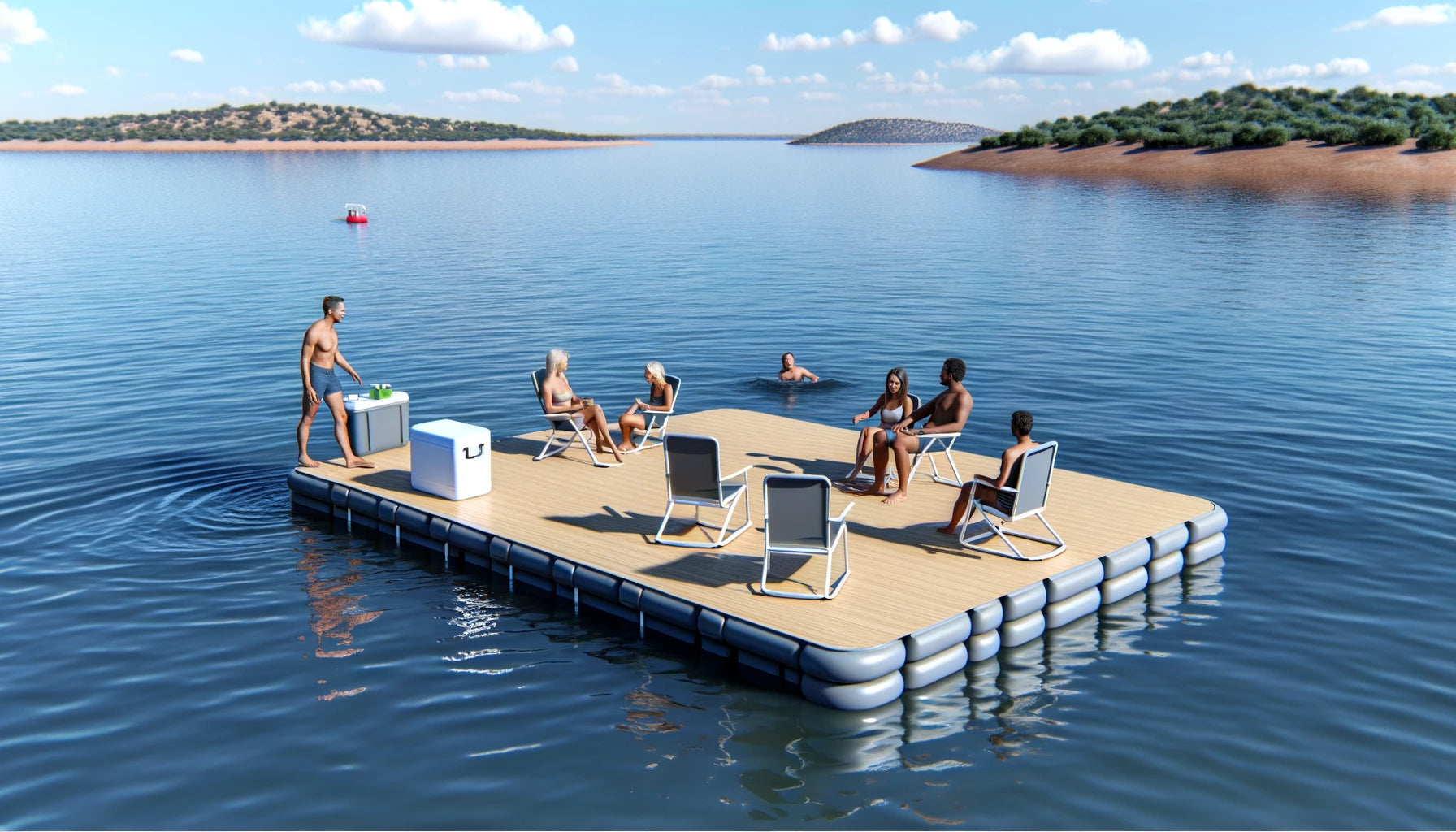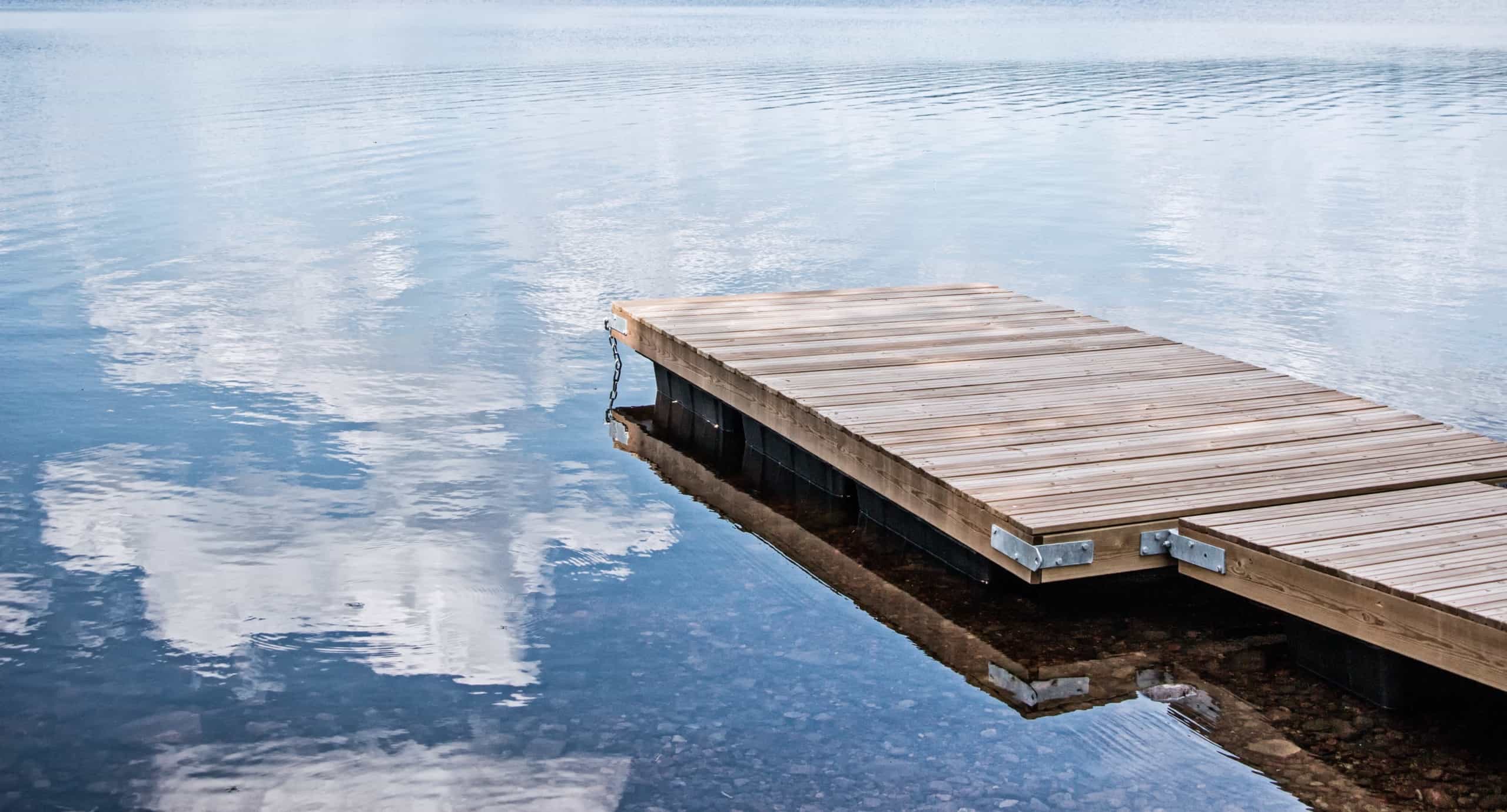Why Floating Docks Are the Perfect Solution for Your Waterfront Requirements
Floating docks present a compelling option for beachfront requirements, specifically because of their flexibility to varying water levels and their durable, modular design. These frameworks not just enhance functionality for both recreational and industrial functions yet additionally offer personalization options tailored to details demands. In addition, their eco-friendly materials add to sustainability efforts. As we explore the complex advantages and applications of floating docks, it ends up being apparent why they stand out in the world of waterfront infrastructure-- particularly when thinking about the long-lasting benefits they attend to different stakeholders.
Secret Benefits of Floating Docks
The convenience of floating docks deals various benefits for beachfront applications, making them an increasingly prominent selection among marina operators and property programmers. Among the key advantages is their versatility to rising and fall water degrees, which enables them to continue to be useful in different atmospheres, including lakes, rivers, and coastal locations. Unlike typical set docks, floating docks can rise and fall with the tides and seasonal changes, guaranteeing constant ease of access.
Furthermore, floating docks are commonly easier and cheaper to install and keep. Their modular design facilitates fast setting up, minimizing labor expenses and construction time. The materials made use of in floating dock construction are usually immune to deterioration, ensuring long life with very little maintenance.
Security is another vital advantage; the buoyant nature of these docks decreases the threat of accidents throughout disembarking and boarding, making them particularly appealing for family-oriented centers. Their ecological effect is lower than that of set frameworks, as they do not disrupt marine communities. Jointly, these advantages setting floating docks as a premium option for a series of beachfront demands, aligning with both operational performance and eco-friendly factors to consider.
Suitable Applications for Different Tasks
Flexibility is a characteristic of floating docks, making them ideal for a wide range of tasks across numerous beachfront settings. These flexible structures can act as optimal platforms for leisure activities such as boating, angling, and swimming. Their buoyant nature permits very easy accessibility to boat, allowing smooth embarkation and disembarkation, while also offering a stable location for fishermens to cast their lines.
In industrial setups, floating docks facilitate the loading and dumping of items, fitting both huge and little vessels. They are especially valuable in locations with ever-changing water levels, guaranteeing that procedures stay continuous. Furthermore, floating docks can be made use of for waterside dining and home entertainment, supplying a beautiful and unique experience for clients.
Environmental applications are additionally significant; floating docks can work as observation platforms for wild animals enjoying or as docking terminals for research study vessels participated in ecological research studies. As marina growths end up being a lot more prevalent, these docks supply a functional solution for enhancing capacity without extensive land modifications. Inevitably, the adaptability of floating docks makes them a preferred selection for anybody looking for useful and reliable beachfront solutions.
Design and Personalization Choices
Floating docks not just cater to diverse activities but additionally supply a series of layout and modification alternatives that improve their performance and aesthetic charm. These functional frameworks can be tailored to fit certain beachfront requirements, whether for property, industrial, or recreational objectives.
One key facet of personalization is the choice of products. Options vary from high-density polyethylene to light weight aluminum, each supplying distinct benefits in terms of toughness and upkeep. In addition, the configuration of the dock can be adjusted to fit numerous water degrees and environmental problems, making sure security and security.
Layout features can consist of incorporated seating, barriers, and lights, which not only enhance usability however additionally enhance the appearance of the dock. Custom colors and coatings enable proprietors to match the dock with existing structures or personal choices, developing a cohesive look for the waterside.
In addition, floating docks can be created with modular areas, enabling easy growth or reconfiguration as demands transform. This flexibility is especially useful for expanding family members or evolving business. Generally, the considerable design and customization choices offered make floating docks an extremely versatile service for any kind of waterside setup.
Installation and Upkeep Factors To Consider
Typically, successful setup and maintenance of floating docks require careful planning and attention to information. Prior to starting installment, it is important to assess the specific site problems, consisting of water deepness, wave activity, and regional guidelines. This preliminary assessment notifies the choice of materials and layout, making certain the dock will certainly hold up against ecological anxieties.

Upkeep is equally vital to prolong the life-span of the dock. Regular assessments should be carried out to identify deterioration, specifically on flotation gadgets, connectors, and decking. Cleansing the dock periodically assists protect against the buildup of algae and debris, which can endanger surface stability and aesthetics.
Furthermore, seasonal prep work, such as getting rid of accessories and protecting the dock throughout severe weather, can stop damages. By focusing on proper setup and regular upkeep, proprietors can ensure their floating dock stays a reliable and functional waterfront service for many years to find.

Ecological Influence and Sustainability
The environmental impact of floating docks is an important consideration for waterfront tasks, as these frameworks communicate directly with marine environments. floating dock services. Unlike conventional fixed docks, floating docks lessen disruption to the substratum, permitting natural debris motion and decreasing disintegration. Their style allows for water circulation underneath, promoting healthy and balanced water environments and sustaining local wild animals
Numerous floating docks are created from sustainable products, such as green composites and recycled plastics, which lower the carbon footprint linked with manufacturing. In addition, contemporary layouts incorporate attributes that enhance ecological sustainability, such as absorptive surfaces that assist in water filtration and lessen pollution.
Floating docks likewise give an optimal helpful site system for habitat repair by sustaining the growth of aquatic plants and offering sanctuary for fish and various other marine organisms. By consisting of attributes like fish habitats and submerged plantings, floating docks can enhance biodiversity in the area.
Furthermore, these frameworks look at this website can be made to accommodate solar panels, supplying renewable resource options that even more minimize their ecological influence (floating dock builder). Generally, floating docks stand for a lasting option that stabilizes human usage of watersides with the conservation of essential ecological communities
Final Thought
In final thought, floating docks existing a highly versatile and lasting service for diverse beachfront requirements. Ultimately, the personalized functions and capacity for growth further strengthen floating docks as an optimal choice for any kind of waterside task.
Floating docks present an engaging option for waterfront requirements, particularly due to their flexibility to varying water degrees and their robust, modular design. Unlike standard fixed docks, floating docks can drop and rise with the trends and seasonal changes, making sure consistent availability.
Collectively, these advantages placement floating docks as a superior option for a range of waterside demands, aligning with both functional performance and environmental factors to consider.
In general, the considerable design and personalization alternatives offered make floating docks a highly adaptable option for any kind of waterside setup.
Unlike traditional fixed docks, floating docks minimize disruption to the substrate, permitting for all-natural sediment movement and minimizing disintegration.